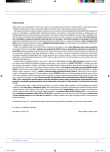-
Medical journals
- Career
Opportunistic Infections in Patients after Complex Therapy of Cancer
Authors: R. Jančálek 1; Z. Novák 1; J. Chrastina 1; P. Burkoň 2; B. Slaná 3; V. Feitová 4
Authors‘ workplace: Neurochirurgická klinika FN u sv. Anny a LF MU, Brno 1; Klinika radiační onkologie LF MU, Masarykův onkologický ústav, Brno 2; I. patologicko-anatomický ústav LF MU a FN u sv. Anny v Brně 3; Klinika zobrazovacích metod LF MU a FN u sv. Anny v Brně 4
Published in: Klin Onkol 2011; 24(1): 46-49
Category: Case Reports
Overview
Backgrounds:
An opportunistic infection is an infection caused by pathogens, such as Toxoplasma gondii, that usually are not pathogenic in a healthy host but may cause an infection in immunocompromised patients. Although the most frequent cause of an opportunistic infection is immunodeficiency due to HIV infection, the immunodeficiency induced by anticancer treatment cannot be ignored.Design:
A 56-year old female patient after a comprehensive treatment of breast cancer underwent a stereotactic biopsy of MR-verified multiple brain lesions suspected to be of metastatic aetiology. The histology report unexpectedly concluded that the lesion was brain toxoplasmosis confirmed by detection of IgM specific antibody in cerebrospinal fluid. Immunology examination has proven a deficit of cell-mediated immunity. The symptoms (cephalea, cerebellar symptomatology with vertigo) and MR findings disappeared following 6-month treatment with a combination of pyrimethamin, sulfadiazin and leucovorin.Conclusion:
Since neoplastic duplicities and brain lesions of non-neoplastic aetiology are found in about 11% of oncology patients, histological verification of aetiology of intracranial lesions is essential for targeted therapy of these patients. Our case of brain toxoplasmosis documents the role of opportunistic infections in differential diagnosis of brain lesions in patients who underwent anticancer treatment.Key words:
opportunistic infections – cerebral toxoplasmosis – neoplasms – therapeutics
Sources
1. Mechl Z, Brančíková Z. Nežádoucí účinky protinádorové léčby a jejich léčba. Med Pro Praxi 2009; 6(6): 325–329.
2. Nordman E, Toivanen A. Effects of irradiation on the immune function in patients with mammary, pulmonary or head and neck carcinoma. Acta Radiol Oncol Radiat Phys Biol 1978; 17(1): 3–9.
3. Stratton JA, Byfield PE, Byfield JE et al. A comparison of the acute effects of radiation therapy, including or excluding the thymus, on the lymphocyte subpopulations of cancer patients. J Clin Invest 1975; 56(1): 88–97.
4. Raben M, Walach N, Galili U et al. The effect of radiation therapy on lymphocyte subpopulations in cancer patients. Cancer 1976; 37(3): 1417–1421.
5. Slater JM, Ngo E, Lau BH. Effect of therapeutic irradiation on the immune responses. AJR Am J Roentgenol 1976; 126(2): 313–320.
6. Job G, Pfreundschuh M, Bauer M et al. The influence of radiation therapy on T-lymphocyte subpopulations defined by monoclonal antibodies. Int J Radiat Oncol Biol Phys 1984; 10(11): 2077–2081.
7. Blomgren H, Baral E, Edsmyr F et al. Natural killer activity in peripheral lymphocyte population following local radiation therapy. Acta Radiol Oncol 1980; 19(2): 139–143.
8. Toivanen A, Granberg I, Nordman E. Lymphocyte subpopulations in patients with breast cancer after postoperative radiotherapy. Cancer 1984; 54(12): 2919–2923.
9. Wasserman J, Blomgren H, Petrini B et al. Effect of radiation therapy and in vitro x-ray exposure on lymphocyte subpopulations and their functions. Am J Clin Oncol 1982; 5(2): 195–208.
10. Haskell CM. Immunologic aspects of cancer chemotherapy. Annu Rev Pharmacol Toxicol 1977; 17 : 179–195.
11. Oldham RK. Therapeutic approaches to cancer-associated immune suppression. In: Oldham RK et al. Principles of Cancer Biotherapy. New York: Springer 2009 : 101–147.
12. Machala L, Kodym P, Černý R. Toxoplazmóza. Int Med pro Prax 2005; 3 : 120–122.
13. Schwartz J, Domchek SM, Hwang WT et al. Evaluation of anemia, neutropenia and skin toxicities in standard or dose-dense doxorubicin/cyclophosphamide (AC)-paclitaxel or docetaxel adjuvant chemotherapy in breast cancer. Ann Oncol 2005; 16(2): 247–252.
14. Patchell RA, Tibbs PA, Walsh JW et al. A randomized trial of surgery in the treatment of single metastases to the brain. N Engl J Med 1990; 322(8): 494–500.
Labels
Paediatric clinical oncology Surgery Clinical oncology
Article was published inClinical Oncology

2011 Issue 1-
All articles in this issue
- Basal Cell Carcinoma of the Skin – Biological Behaviour of the Tumor and a Review of the Most Important Molecular Predictors of Disease Progression in Pathological Practice
- The Current Development of New Drugs for Solid Tumors – Change of View on the Optimal Design of Clinical Trials
- Coronary Heart Disease and Hypertension as Late Effects of Testicular Cancer Treatment – a Minireview
- The Use of PET/CT Fusion in Radiotherapy Treatment Planning of Non-Small-Cell Lung Cancers
- Plasma Cell Separation Algorithm from Bone Marrow Samples
- Opportunistic Infections in Patients after Complex Therapy of Cancer
- Vulvar Intraepithelial Neoplasia
- Antineoplastic Effects of Simvastatin in Experimental Breast Cancer
- Clinical Oncology
- Journal archive
- Current issue
- Online only
- About the journal
Most read in this issue- Basal Cell Carcinoma of the Skin – Biological Behaviour of the Tumor and a Review of the Most Important Molecular Predictors of Disease Progression in Pathological Practice
- Vulvar Intraepithelial Neoplasia
- The Use of PET/CT Fusion in Radiotherapy Treatment Planning of Non-Small-Cell Lung Cancers
- Opportunistic Infections in Patients after Complex Therapy of Cancer
Login#ADS_BOTTOM_SCRIPTS#Forgotten passwordEnter the email address that you registered with. We will send you instructions on how to set a new password.
- Career

